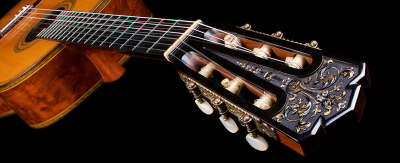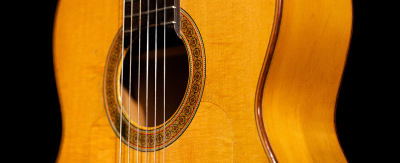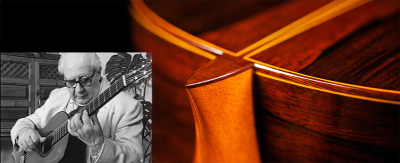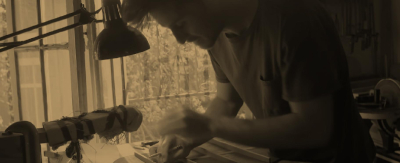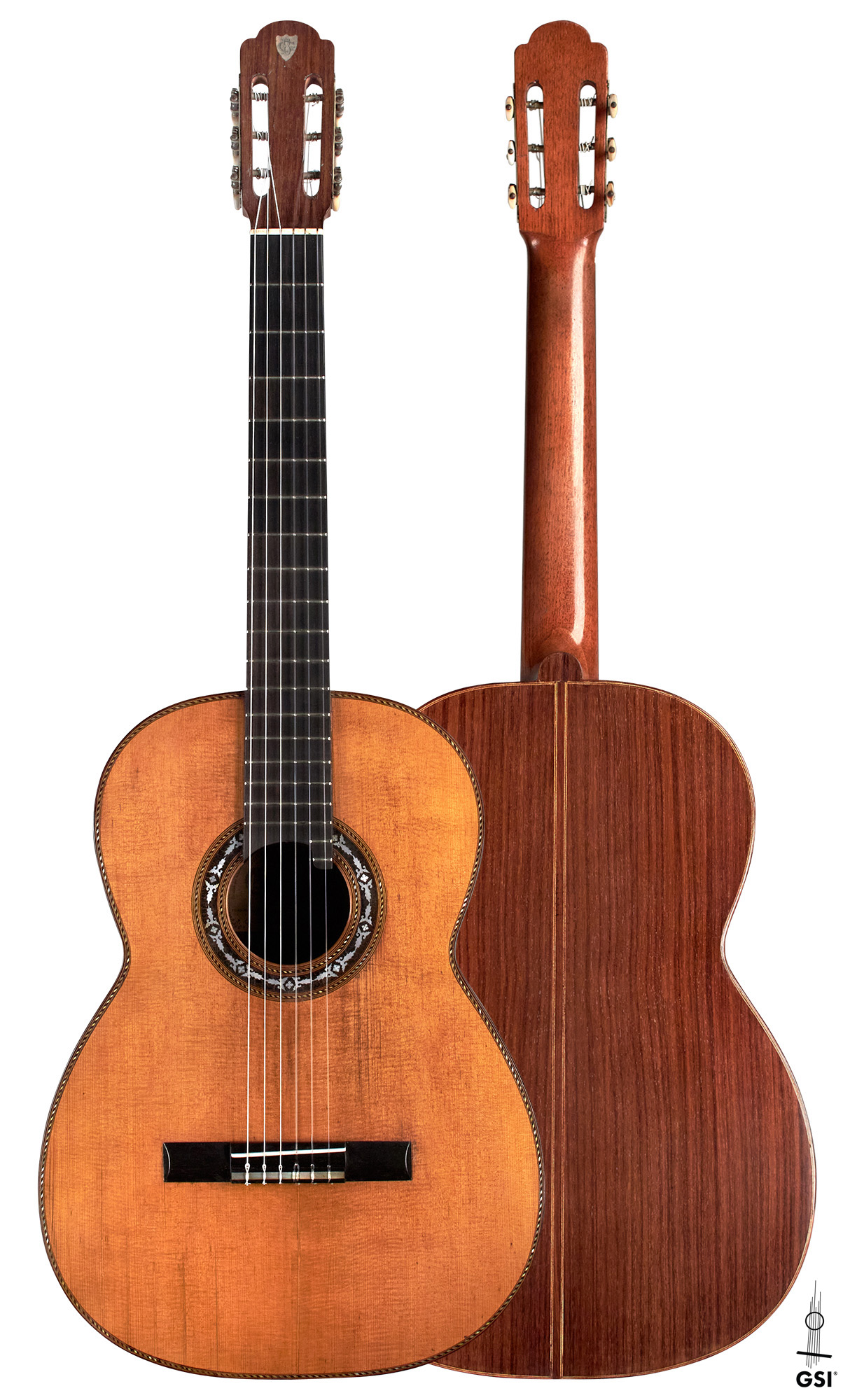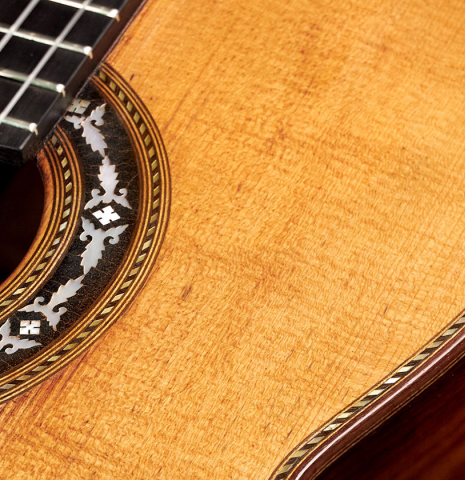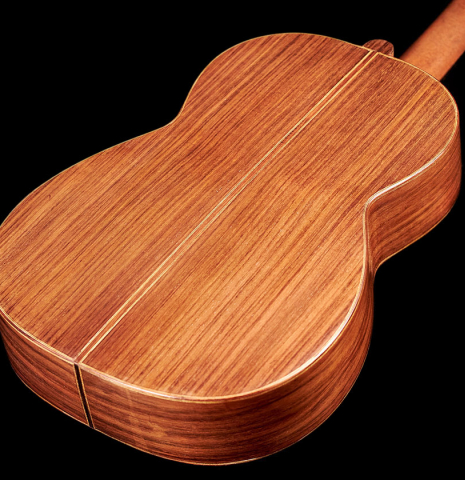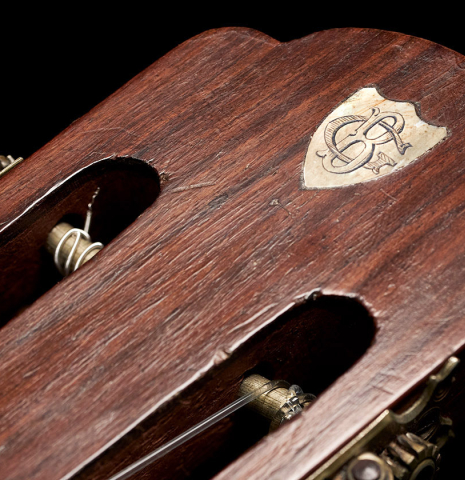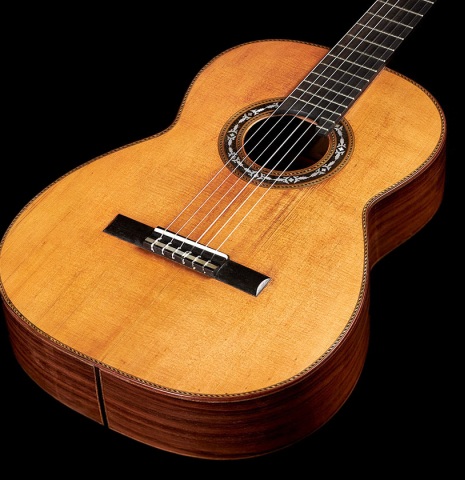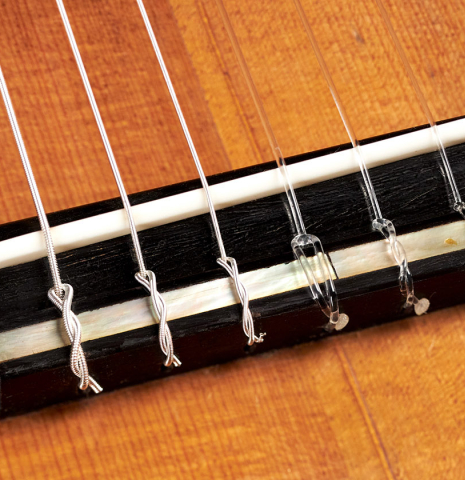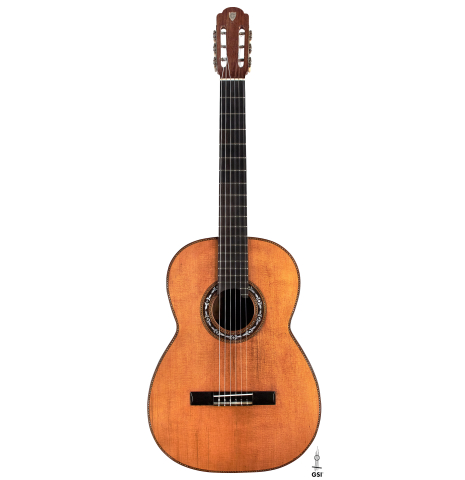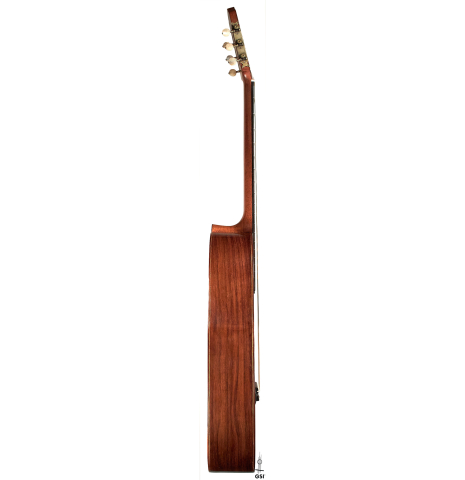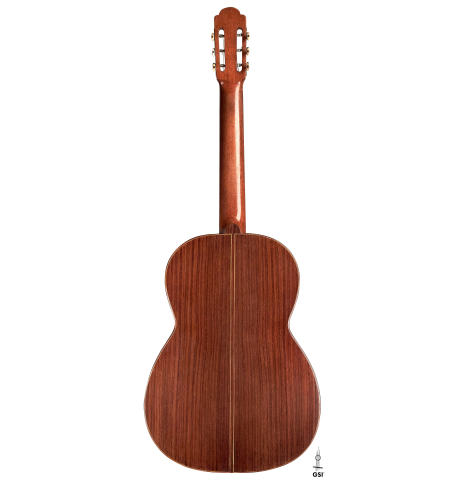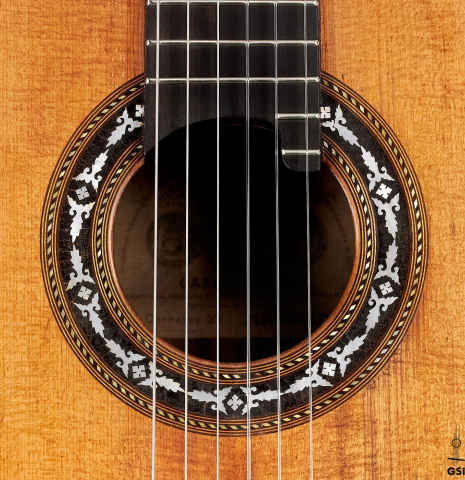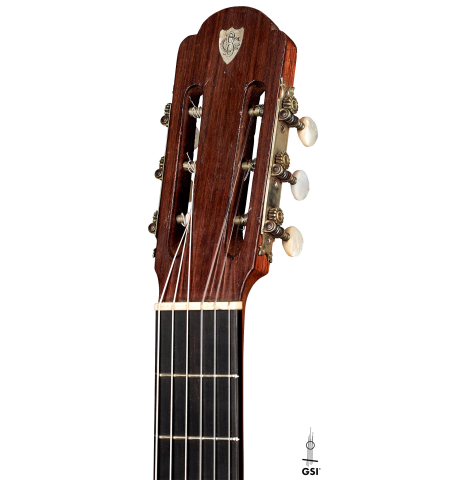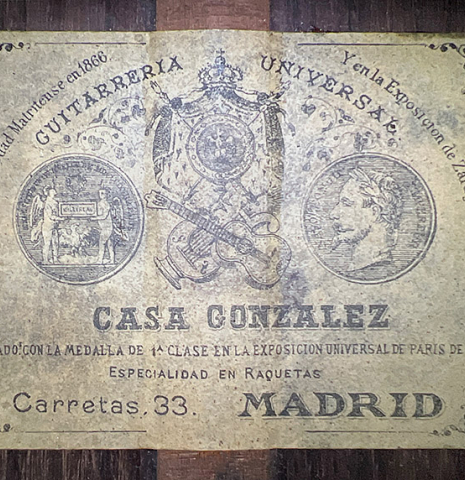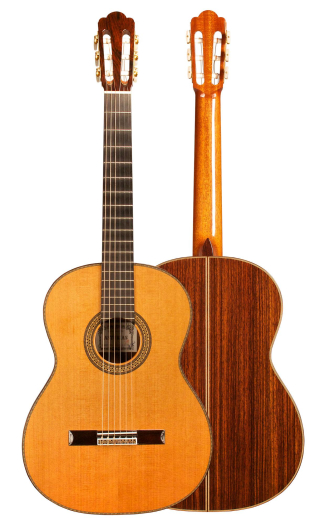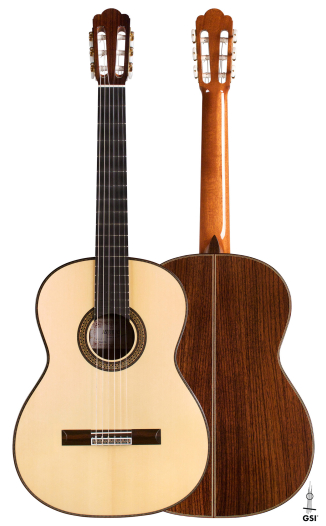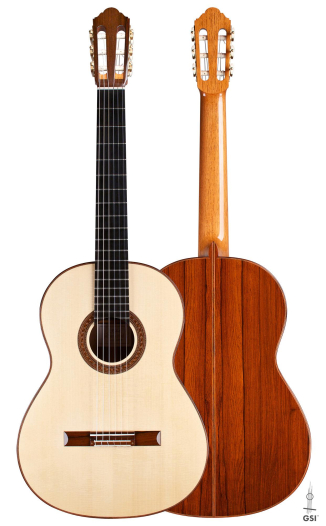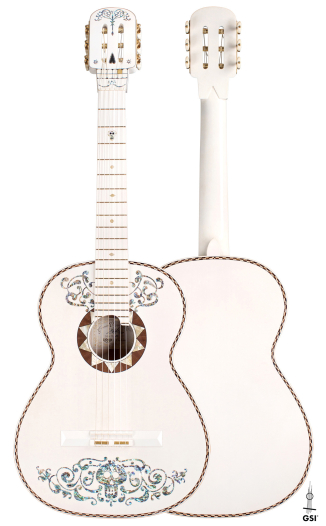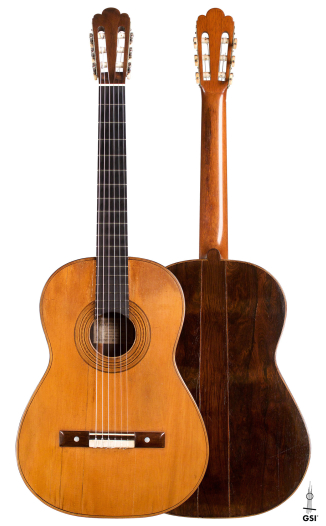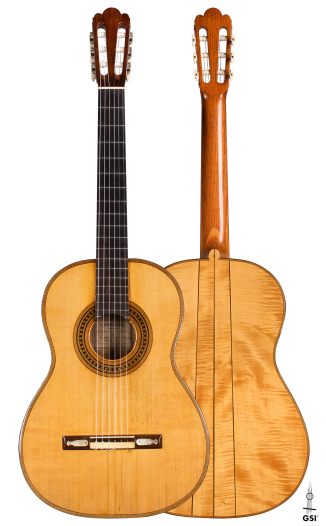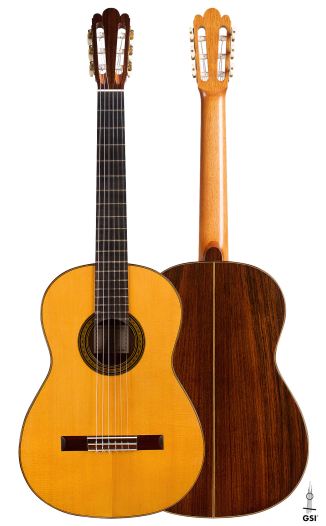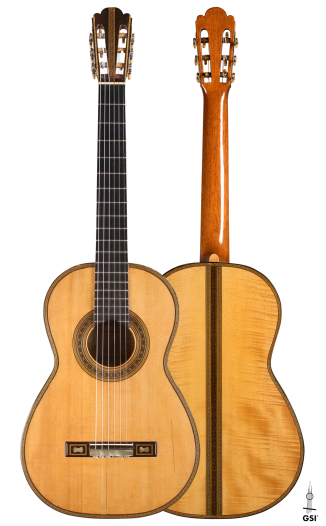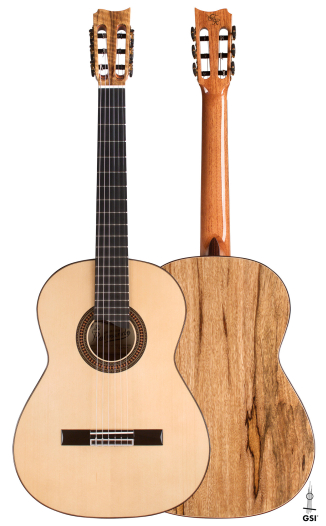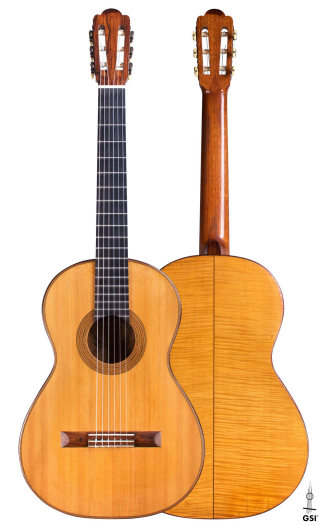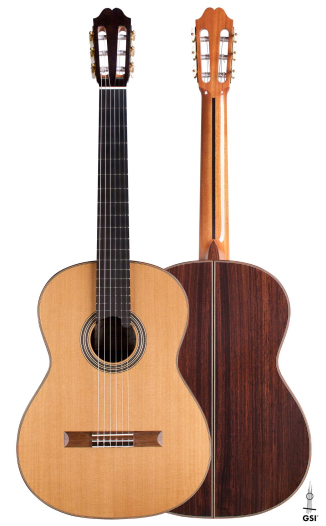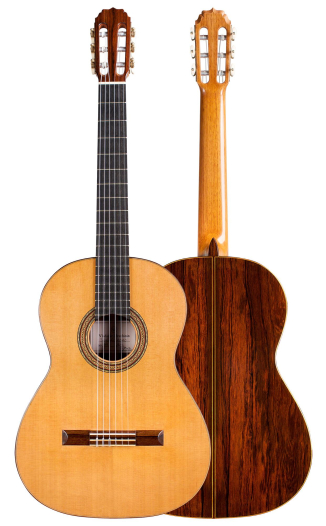1900's Casa Gonzalez SP/CSAR
| Year | 1900's |
| Top | Spruce |
| Back & Sides | CSA Rosewood |
| Scale Length | 650 mm |
| Nut width | 52 mm |
| Finish | French Polish |
| Country | Spain |
| Condition | Excellent |
| Exchange | ExchangePlus |
$12,000.00
$15,000.00 -20%Nineteenth century Madrid-based builder Francisco Gonzalez was a near exact contemporary of Antonio de Torres but who built in his own style - in particular as he states on his label that his instruments are built in "a new and elegant design with a special system" (...una nueva y elegante forma y construidos por un sistema especial suyo...). Gonzalez was very celebrated in his own day - he was the winner of several prizes and medals in various exhibitions during his lifetime and is known to have been the teacher of both Jose Ramirez I and his brother Manuel Ramirez. Indeed it was Jose I's loyalty to Gonzalez and the "sistema" and Manuel's conversion to the Torres design that was the source of the ideological split between the two Ramirez brothers that forced them to break their partnership and instead set up competing shops in Madrid. Gonzalez' reputation in his own day is strongly suggests that he must have been a prolific builder, however, much like Vicente Arias, very few of his instruments survive to the present day. After his death in 1879, his work was carried on by his son-in-law Enrique Romans Papell at first under the name "Viuda e Hijos de Francisco González" and after 1901, "Casa Gonzalez" which remained active into the 1940s.
This particular guitar is a beautiful example of a top-model from this shop, featuring some exquisite inlay work - the mother-of-pearl in the central band of the rosette are matched also in the half-herringbone purflings on the top and on the inside and outside of the rosette. Apart from several old and stable repairs, the instrument is in extremely well-preserved condition and remains very original - thicknesses of woods, finish, even tuning machines. Sound-wise the guitar is nothing short of spectacular with a huge bottom end that would rival any design that has come before or after. Although the basses are huge, they are transparent to the upper notes and do not crowd out the brilliant, crystalline trebles - the guitar, therefore, retains an unusually perfect balance, even amid the richness of the bass notes. This is by every standard a rare, historical, well-preserved and for all matters, great sounding and playing guitar by one of the most important and influential turn-of-the-century (19th/20th) Spanish workshops.
Videos
Nineteenth century Madrid-based builder Francisco Gonzalez was a near exact contemporary of Antonio de Torres but who built in his own style - in particular as he states on his label that his instruments are built in "a new and elegant design with a special system" (...una nueva y elegante forma y construidos por un sistema especial suyo...). Gonzalez was very celebrated in his own day - he was the winner of several prizes and medals in various exhibitions during his lifetime and is known to have been the teacher of both Jose Ramirez I and his brother Manuel Ramirez. Indeed it was Jose I's loyalty to Gonzalez and the "sistema" and Manuel's conversion to the Torres design that was the source of the ideological split between the two Ramirez brothers that forced them to break their partnership and instead set up competing shops in Madrid. Gonzalez' reputation in his own day is strongly suggests that he must have been a prolific builder, however, much like Vicente Arias, very few of his instruments survive to the present day. After his death in 1879, his work was carried on by his son-in-law Enrique Romans Papell at first under the name "Viuda e Hijos de Francisco González" and after 1901, "Casa Gonzalez" which remained active into the 1940s.
This particular guitar is a beautiful example of a top-model from this shop, featuring some exquisite inlay work - the mother-of-pearl in the central band of the rosette are matched also in the half-herringbone purflings on the top and on the inside and outside of the rosette. Apart from several old and stable repairs, the instrument is in extremely well-preserved condition and remains very original - thicknesses of woods, finish, even tuning machines. Sound-wise the guitar is nothing short of spectacular with a huge bottom end that would rival any design that has come before or after. Although the basses are huge, they are transparent to the upper notes and do not crowd out the brilliant, crystalline trebles - the guitar, therefore, retains an unusually perfect balance, even amid the richness of the bass notes. This is by every standard a rare, historical, well-preserved and for all matters, great sounding and playing guitar by one of the most important and influential turn-of-the-century (19th/20th) Spanish workshops.
Feel free to contact us with any questions. It’s what we’re here for!

